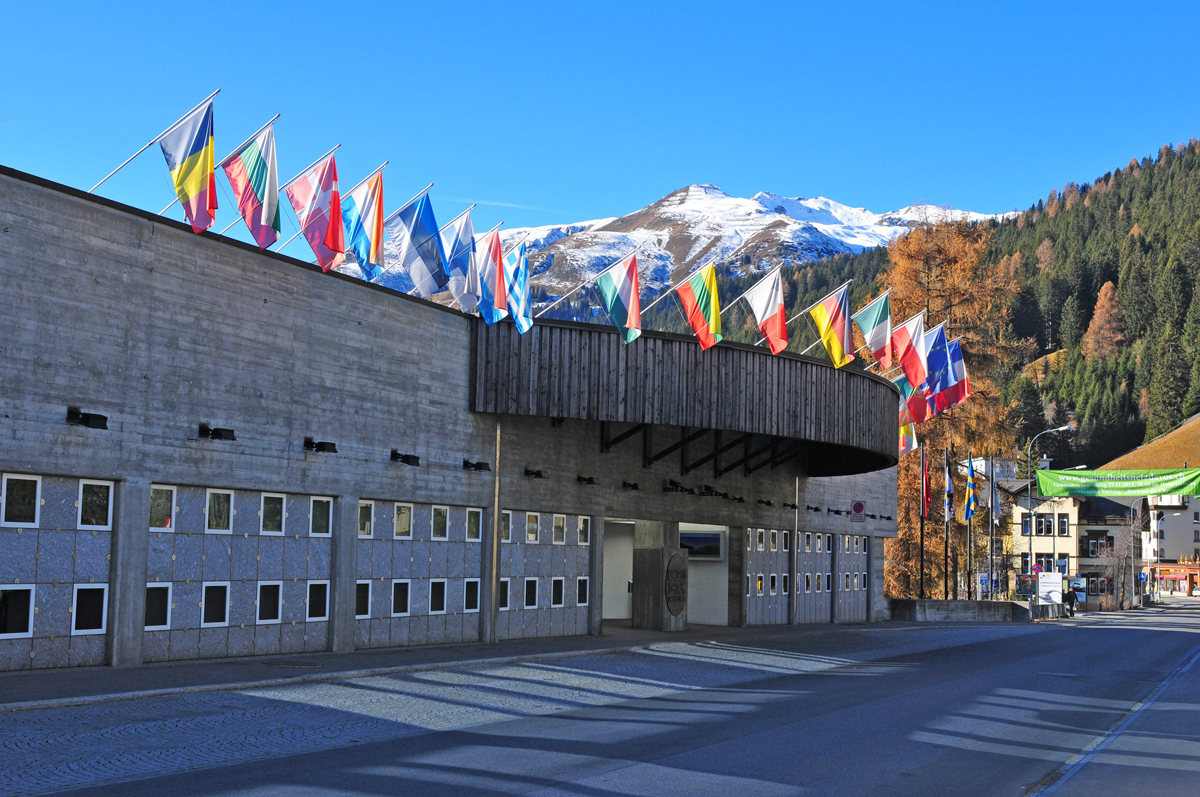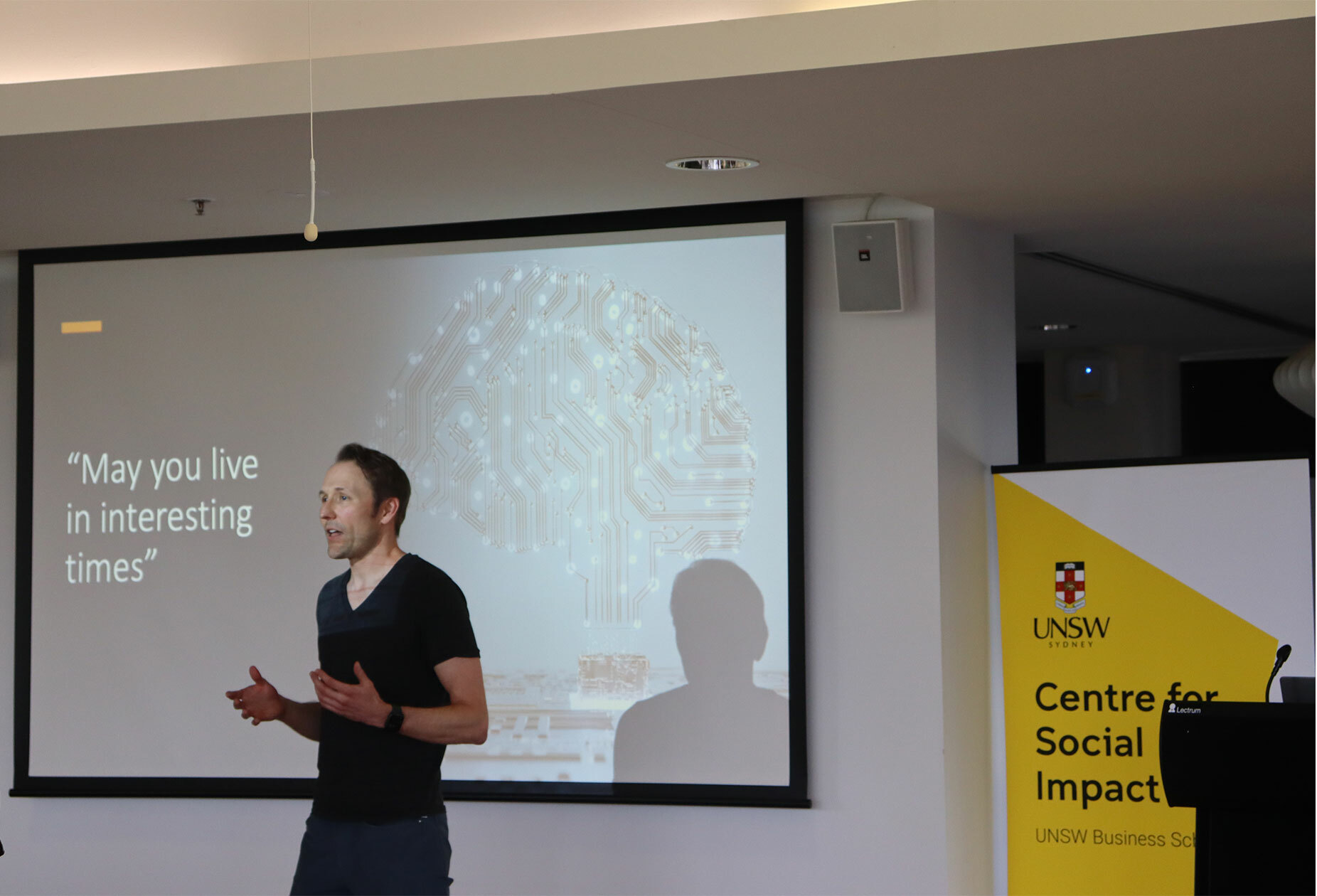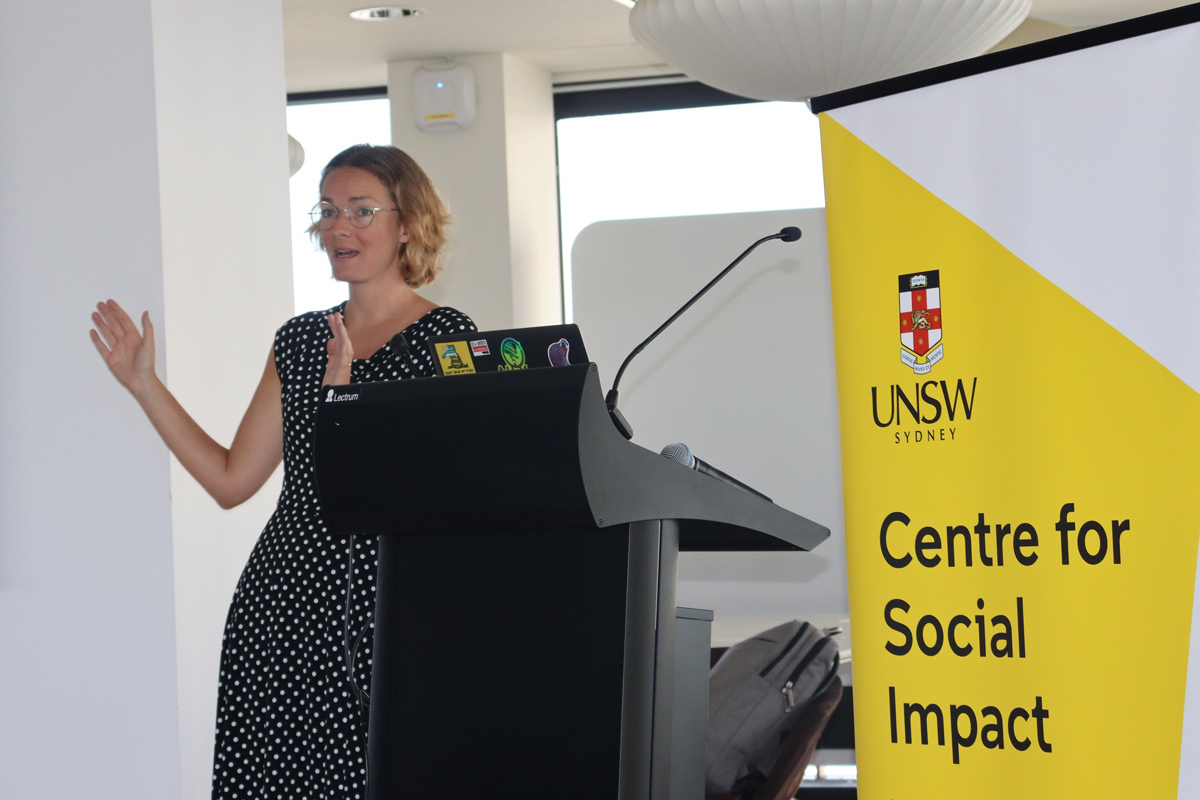A conversation on social innovation and entrepreneurship in the Asia Pacific


In a recent webinar, Professor Danielle Logue, Director of CSI UNSW, discussed the role of social innovation and entrepreneurship in forging the foundations of a more inclusive and sustainable economy.
Professor Logue was joined by Jonathan Wong, Chief of Innovation (Enterprise and Investment) at the United Nations Economic and Social Commission for Asia and the Pacific. He shared examples of new policy approaches and experiments from across the region, as well as delving into impact investing, artificial intelligence, and more.
Watch the recording or read through the Q&A below.
Prior to being at the United Nations, Jonathon Wong was at the UK Department of International Development, where he was the inaugural Head of Innovation. Jonathan led several high-profile social innovation initiatives, including catalyzing the Global Innovation Fund, a blended finance partnership between private and public capital across countries, including Australia.
Jonathan has extensive experience and policy expertise in social innovation and entrepreneurship, technology, innovative financing, and impact investing.

Why are we seeing this shift and interest in using the term ‘social economy’? What do you think the value of using this term is? And what are you seeing in terms of a regional focus of this social economy?
There’s certainly been this realization that there's a need for a new economic model. If I go back a hundred years or so, there's no question the private sector, business, entrepreneurs, however we want to define that, have been a source of economic dynamism and innovation, not just in the Asia Pacific region, but globally as well.
We've seen how business has put money in people's pockets and allow them to support their families and their communities. So certainly, there's a very good economic story to tell around the role of business, the private sector, entrepreneurship, or whatever it may be.
But I think undoubtedly, and there’s very big data around this, it’s probably not so good for the environment and society. We've seen CO2 emissions rise in step with the industry revolutions, and income inequalities are at the greatest they've ever been.
I think certainly there's a sense that we need a model that better balances people, planet, and profit.
Fast forwarding to more recent times, COVID really made this need for a new economy really striking. It turned into a story of the ‘haves’ and the ‘have-nots’. The very poorest couldn't afford, or access, vaccines. We saw the share prices of technology companies soaring during the pandemic, while the very poorest people, and I live here in Bangkok, I saw the street vendors who were selling fruit on the street, and fruit disappearing one by one.
And that for me is not an economy that works, and I think I'm not alone in thinking that.
COVID on top of what I said previously on the history of economic development, reveal the fractured economy that's really in dire need of innovation quite frankly.
That's why I think this term social economy, as opposed to just kind of mainstream economics is really gaining traction, particularly in the Asia Pacific region.
Given your regional focus of your role at the UN, what are the important variations or nuances that you're seeing in terms of policy approaches of using this idea of the social economy?
It's interesting because I'm from the UK. So, I've seen this modelling of the developed world versus the developing world. And there's some quite striking differences. And I think it's too early to say whether they're right or wrong…
I think that it's always a question of balance as well. So, if I take the UK experience, it was very much the social entrepreneurship, social innovation, social economy agenda.
In the UK, it was more of a civil society movement looking to become more entrepreneurial.
So, how can civil society organizations use business models to go beyond just donations and actually generate revenue?
Now in other countries, where I've been working, particularly in Asia, it's been more business led. It's businesses saying how can we do good, versus civil society saying how can we become more entrepreneurial, or more business minded?
The second thing we've seen is the mainstreaming versus standalone social economy policies. I had a very interesting conversation with colleagues at the European Commission, who are very proud of the fact that they developed a social economy action plan for the European Union. And I said, That’s amazing, right? Amazing.
But I was saying, the European Commission also has an economic, not a social economy, an economic plan.
And this is what I mean by this question of mainstream. Do you have standalone policy?
Where I am in Thailand, as another example, we have a social enterprise act – a purely standalone policy. Korea has the same thing. While in other countries, such as in Indonesia, social entrepreneurship is integrated into the national development plan.
In Vietnam we worked with the government on their inclusive and sustainable private sector strategy. So again, we were incorporating these, if you like, social economy principles within mainstream economic policy.
Similarly, just a few weeks ago in Sri Lanka, the Prime Minister launched the inclusive and sustainable business strategy for Sri Lanka . Again, mainstreaming. So, that's another key difference.
These are questions for Australia, I suppose, do you mainstream into main economic policy, or do you do standalone?
And of course there are trade-offs around all of this. There are benefits. And very briefly on that point, having a stand-alone policy, kind of ensures and safeguards the principles and the purity of what it means to be a social enterprise or work in social innovation. But I suppose the trade-off is, you may not get the mainstreaming within the core economy.
If you mainstream, there is a bigger chance you're going to get the scale. But maybe some of the principles that underpinned social innovation may be lost in that.
One more point in this around terminology. I'm kind of a pragmatic innovator, and I realise that's a bit of an oxymoron, but we see different terminologies used.
Social economy, impact economy, we see social enterprises, social businesses, inclusive businesses, B-corps.
We see all these different sorts of terminology, but in my opinion, I see this all a part of this broader social economy movement.
READ MORE ON THE SOCIAL ECONOMY
You were recently at Davos speaking on the topic of ‘why does social innovation matter for business?’ Why does it?
I've been championing the social entrepreneurship agenda, with the Schwab Foundation , which is the sister organization to the World Economic Forum (WEF).
We've been working with them on ‘how do we build the social economy narrative within the main WEF platform?’ And this has been for a few years we've been working now.
Now, this year was interesting. The reception was quite good, and of course it would be.
How could they say we could be wrong when we’re looking at aligning profit, people, and planet. How could they possibly disagree?
But the one thing I would say is, the way we try to frame it was probably slightly different. I think the framing of the business case for why businesses should care about social innovation has changed.
We no longer spoke about how two billion people in the Asia Pacific region without access to the internet is a development challenge.
We said, it's actually a business opportunity. Two billion people without access to clean water in the world, which is sadly a fact, it’s not a development challenge, it's also a business opportunity.
It's not ‘this is some sort of charitable handout that we need from you to solve the world’s problems’, but these are business opportunities. The whole clean tech sector is another massive business opportunity. With legislation and policy around the world, and COP commitments going in that direction.
In terms of more concrete stuff, there were some very interesting pledges and new initiatives that were raised.
One of the key initiatives raised was the Global Alliance for Social Entrepreneurship which is made up of some of the biggest corporates in the world who have actually committed to promoting social entrepreneurship. It's co-chaired by SAP and Microsoft - two huge organisations.
And it's really interesting to see how corporates are thinking about social innovation and supporting social entrepreneurs. So SAP, they were saying how they're looking to integrate social enterprises within their supply chain.
I think the other thing to mention was, something called the Rise Ahead Pledge where corporates for the first time, at Davos, are making dollar pledges in the multi-million dollar range USD, around promoting and supporting social enterprises.
There’s still a long way to go. I think we're still a long way from mainstreaming these principles within the corporate, and bigger business world.
But certainly, we're seeing a movement that way, and these more concrete pledges in terms of dollars and commitments are certainly indicating to me at least, that we're moving in the in the right direction.

In those conversations, what was the perceived role for government policy or multilateral organizations like the UN? Where is that conversation at?
I came from venture capital, and when I was in the private sector, I was always very cynical of government. I was like, just get out of the way, you know. Make it easy for us to run our business, etc.
Then I went to work for the government, and I was like, actually, government policy can do very interesting things.
Because I think government policy - they set the rules of the game in many ways. And really, can give both carrots and sticks, in many ways.
We've seen in Cambodia, one of the few countries who have mandated environmental reporting alongside financial reports, for companies. You can mandate this event. Every company needs to produce financial statements at the end of financial year. Not all of them do environmental. So again, a carrot example.
While in terms of incentives here in Thailand, we have a Social Enterprise Act and there is a royal decree that gives investors in social enterprises a hundred percent tax break.
For example, you're an investor looking at, investing in a very nice boutique hotel in downtown Bangkok versus a social entrepreneur who's providing low cost housing solutions to the very poorest people living in urban slums. It may make someone think about, maybe I'll go that way.
But even away from social innovation or social entrepreneurship related policies, we've seen in the Pacific Islands, where they banned single use plastics.
Now, these kinds of policies that are tangentially related to social innovation, it changes the rules of the game for business.
So suddenly, all businesses are thinking, ‘okay, we need to shift our business model’.
So, this is where I think government policy could be so powerful. In terms of both the incentives and the mandates, and the regulation that they put in place as well.
I want to touch on the investing side of things. This is an area where there has been a lot of hope, and perhaps arguably hype, around the potential of impact investing. It’s role in the financial system and in funding solutions to grand challenges as well. What's your assessment of the progress of impact investing in in the region?
There’s a lot of talk about us being at the tipping point of impact investing, but I don’t think we’re anywhere near it. In terms of the amount of capital we need to unlock. We’re nowhere near it.
You've got some of the COP commitments that have been made, and the caps that need to be mobilized. We’re nowhere near them.
So, that's kind of my assessment, not just Asia specific but globally around where we are. I don’t think we’re there yet.
I do think there are huge opportunities and reasons to be optimistic, though.
To give an example, we recently supported the establishment of a gender-lens investing fund and one of the key donors to that fund, or the key anchor investors was a mainstream pension fund.
When I met with them, they said to me, ‘well, look, we're just a mainstream pension fund, right? But we're looking to invest for gender equality’.
That was encouraging that it wasn’t an impact investor - this is a mainstream finance institution thinking this way.
And these are the shifts. We need more of that.
I think some challenges, we all know impact washing, green washing, it's a reality.
In terms of government policy. We're seeing some interesting policy experiments. We’ve developed this framework with the global steering group for impact investing, GSG.
We were looking at government role as a market participant, a market regulator, and a market facilitator.
So, to give you an example of what that would look like, as a market participant, in Australia. You've had outcomes funds, or social impact bonds develop that governments can participate in the market.
In terms of regulation, I mentioned the tax breaks we are having Thailand. They can provide that sort of regulation and those sorts of policies.
In terms of being a market facilitator, in India they're looking at a social stock exchange which will link social entrepreneurs and social innovators with impact investors. So, we'll see some really interesting policy experiments.
Let’s see how they look in 5 or10 years’ time and evaluate them. I think there are reasons to be cheerful, but I don't think we’re there yet in in terms of the tipping point, at least.
Is it that inherent problem around impact measurement and getting agreement there? Are you seeing some green shoots in the impact investing space or some coalescence around certain impact measurement frameworks?
I think the holy grail of impact investing is if you can monetize social impact. Then it would be easier. Companies could say, ‘okay, if I do this, this will cut my bottom line’.
Now, that is very easy for me to say but, very, very difficult to do.
I think impact measurement is one thing holding it back, but I think more broadly, it's ‘what is the purpose of investment?’
I'll be honest with you, when I was in venture capital, my bonuses were based on how much money I made. Simple as that. I wasn't investing in tobacco companies, and we were investing in clean tech and health. So, it did have some sort of social impact.
I think that's more holding it back.
But again, on being optimistic, I think businesses in the private sector, the people they listen to are their customers, right? And I think we're having more conscious customers now who are looking at the efficacy and the integrity and the social values of the companies they're buying from.
And I think that shift is going to be helpful. I think some of the employees and the younger employees are not looking just to work for pure profit anymore. I think the majority are looking for social purpose. So, employees will have an impact. And more and more they have to listen to the shareholders.
To give the example of the of the Pension Fund, we're seeing some shareholding companies asking ‘actually, we're looking for a beyond profit return’.
Those are some of the issues that I think are holding back the sector. But again, I think there's nuggets of optimism.
Given your role and the organization that you're working in, what are the priorities for you, where you're hoping to see progress or directing your efforts?
I'm trying to grow this movement in the Asia Pacific with governments around more broadly, how can we get the private sector thinking about people and planet alongside profit? That's ultimately the objective of what we're trying to do.
I've given lots of national examples of what we've done. We're looking to work with country groupings because you can get, maybe, broader impact. For example, last year in the 10 countries of ASEAN, we developed their inclusive business strategy. And this year we're developing their first ever sustainable investment action plan.
These sorts of things are at the highest level. They are endorsed by the economic ministers of ASEAN.
So certainly, my focus this year is, how do we grow a bigger movement?
But also raising the bar on ministerial level interest in this. That’s what will give the civil servants freedom to operate and freedom to move this agenda forward.
What are you seeing on the impact of AI, and the opportunity there? What’s the role it might play in impact measurements and data collection?
It’s the hot topic everywhere. It was the key topic at Davos as well. From my perspective, I would like to see what one Asia Pacific framework on AI governance would look like.
I think it would very look very different from Europe and the US. And we've done some research on this.
I think certainly within our region, I tend to work with the poorer countries, and I see huge potential for Artificial Intelligence in countries where they don't have doctors and nurses.
We can see how very simple AI can detect whether a mole is cancerous or not. You know, countries where they're no teachers. AI could have significant development impacts.
I think, for developed countries, it might be a different story. For example, Japan, where the cost of labour is so high. They may be thinking, well if I invest in AI, it’s probably worth the time and effort and the resources, because it's probably cheaper than hiring 10 people. Where maybe, developing countries don't have that same issue where the cost of labour is so cheap.
I do think AI - and I don't know what it looks like yet - has some sort of role to play in impact measurement and in being a more independent verification of impact measurement. And, that's an interesting area that is yet to be fully tucked into.
This would also address some of the burden that many social entrepreneurs I speak to say, which is ‘look, we’re a social enterprise, we’re asking all this information, it's a lot of work, we're just trying to stay afloat’, and I think that's a real interesting area...



